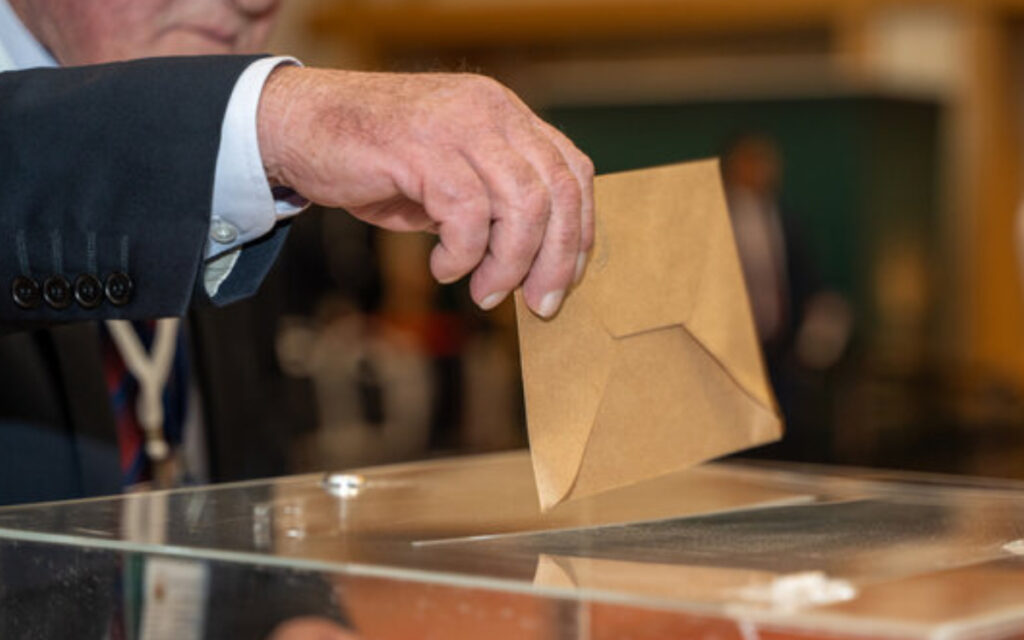
Some municipalities seem asleep at the wheel when it comes to their elections. Photo Credit: Adobe Stock Images.
Although election integrity is so crucial to public confidence in democracy, human scrutiny has increasingly been replaced by reliance on machines. This needs to change.
Canada can be proud of pioneering hand-counted secret ballots in the 1800s. This was first introduced in New Brunswick in 1855 and federally in 1874.
Our traditional system of counting hand-written ballots of verified voters with the scrutiny of representatives of the candidates is the best possible for integrity. Any compromise of any of these aspects is also a compromise of election integrity, and convenience is not reason enough to compromise them.
Joseph Stalin, the late head of the Union of Soviet Socialist Republics, said, “It’s not who votes that counts, it’s who counts the votes.” If the alleged expression of the public will can be overcome by the corruption of a few or many gatekeepers, it really doesn’t matter what people think, does it?
Unscrupulous people greedy for power, whether candidates or those who back them, should not be given any opportunity to corrupt a system. We should expect that they will try, and we should enact systems that give as little as possible of an opportunity to do so.
Unfortunately, more than 200 Ontario municipalities have embraced online voting, and some have even eliminated the paper ballot altogether. Sadly, neither federal nor provincial bodies had offered standards to municipalities. In lieu of these, local municipalities made their own.
In 2023, professors James Brunet of Carleton University and Aleksander Essex of Western University, compared the policies of the municipalities to The Council of Europe’s standards. Unfortunately, Ontario fared poorly, with only 14 per cent meeting the CoE’s 49 standards and 93 implementation guidelines.
“There were several examples of voters receiving multiple voting credentials, which could allow them to vote twice. This is due to duplicate entries on the municipal voters list, or entries for deceased voters not being removed,” Brunet and Essex found.
Two of the six vendors for online voting left themselves open to manipulation by their lack of basic electronic security. This would allow a “Machine-in-the-Middle…to add unofficial information to an embedded version of the e-ballot,” the researchers said.
Do you think it’s essential to verify an individual voter’s vote? The actions of most municipalities show they didn’t think so.
In Ontario’s first five election cycles (2003-2018), the ability to verify an online individual voter wasn’t even present. In 2022, only 21 municipalities used platforms that could enable such capabilities, and only 10 actually did. The election in Markham saw only 2,504 ballots verified out of 64,864, yet this four per cent total represented the highest amount for any jurisdiction.
The researchers interviewed administrators in Markham and the Township of Ignace on their reasons for verifying ballots. An unnamed respondent told them, “When using online voting systems without verification, election administrators do not have any evidence to prove the correctness of the election results in case they are challenged, and sooner or later the election results will be challenged.”
Okay, but 96 to 100 percent of ballots had no individual verification in all Ontario municipalities, which is hardly reassuring. Administrators in Ignace said they would not rely solely on online voting in the future, and one unnamed official thought voter ID was useless anyway.
“I would get rid of the verification, because you already get a message [from the system], your vote has been cast, what else would you need? It created much more confusion. Less is more sometimes,” the Ignace official said.
Hello? When it comes to election integrity, everything is essential, and any leaks and loopholes should be eliminated. Period.
Some municipalities seem asleep at the wheel when it comes to their elections. The pretense of election integrity through voter ID seemed good enough.
“Some with populations half the size of Ignace indicated that they would offer the verification application again,” the researchers reported. “Despite having no verified ballots in one town a clerk commented, ‘Oh my gosh yes. I want to do it again.’”
Huh? If a tool is not used, what good is it doing?
Unfortunately, Brunet and Essex found municipalities had understandable reasons to even put in the ability to verify an individual voter. One was “the perception that verifiable systems increase the risk of voter coercion such as vote-buying or provide voters with an ability to prove to others how they voted.”
Also, administrators were fuzzy on what voter verifiability even meant and didn’t want to spend more money on it. Some were comfortable with systems they had already used, so they didn’t want to change. Besides all this, public demands for better standards were minimal.
It’s high time the public demanded we have election results we can count on instead of ones with zero-to-few verifiable voters or potential machines-in-the-middle changing God knows what.




















